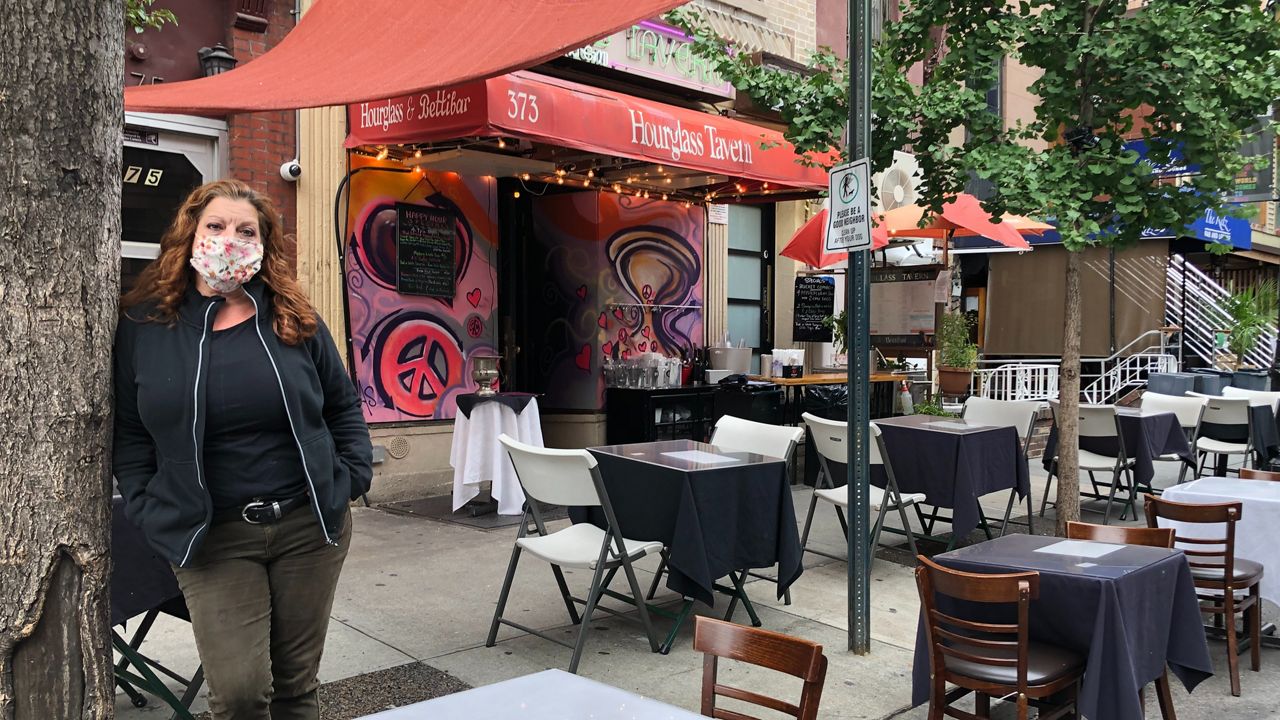The big announcement this week that large crowds in Times Square will not be welcomed to ring in 2021 has many small businesses and tourism advocates bracing for a difficult fall season with a significant drop in visitors due to the pandemic.
“Hopefully, we survive this year. Hopefully, next year will be better,” said Noah Martinez, a sales clerk at NY Luggage on 8th Avenue in the Theatre District.
Martinez has worked at the Times Square gift shop for four year and doesn’t expect to sell much luggage or party favors related to New Year’s over the next few months, despite being a short walk from the Times Square ball drop.
“Our thoughts is it’s not going to be good because we depend on tourists,” Martinez said. “This city, especially New York, depends on tourists coming from all over the place!”
The announcement Wednesday that the iconic ball drop in Times Square would still be taking place, but without crowds, followed the move earlier this month to cancel the annual Halloween Parade in Greenwich Village.
Soon after, Macy’s revealed this year’s Thanksgiving Day Parade would eliminate the traditional two-and-a-half mile parade route to prevent crowds from forming.
Beth Sheinis is the co-owner of Hourglass Tavern on Restaurant Row, which is set to shut down on Sunday, after nearly 12 years in business.
“There’s no way that the numbers can possibly work out with limited dining and it also can’t work out, unless you get free rent,” Sheinis says.
With Broadway shows not taking place, with more people working from home, and with parades and other large gatherings being canceled, she said it’s been a long time since her restaurant has generated the type of consistent foot traffic needed to survive.
“We’re not the only ones,” Sheinis said. “Bigger companies than us just can’t make it work with the kind of logistics we have at hand—trying to cover payroll when you can’t get enough customers inside to help you cover that.”
At a City Council committee hearing Thursday that centered on tourism, Fred Dixon, who heads NYC’s official marketing, tourism, and partnership organization said, with border closures, a decrease in airline routes, and 14-day quarantine requirements currently preventing many people from visiting New York City, the first phase of restarting tourism safely is to attract visitors from within the tri-state area, who are not required to quarantine when they enter the city.
The organization reported visitors to the city brought in close to $70 billion in economic activity last year.
“There are some challenges of course still,” said Dixon, who is president and CEO of NYC & Company. “We have to acknowledge the economic realities. We have a large number of the tri-state population still unemployed. The discretionary income is still a question mark.”
Meantime, Vicki Been, the city’s deputy mayor for Housing and Economic Development, said her office is encouraging New Yorkers to become local tourists by taking a staycation. She suggested supporting local businesses by doing things such as staying at a hotel to celebrate an anniversary.



